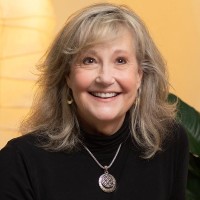STATEHOUSE REPORT | ISSUE 23.47 | Nov. 22, 2024
BIG STORY: Regulators do little with river toxin, report says
MORE NEWS: Malloy asks for new Senate 29 election
LOWCOUNTRY, Ariail: On those escaped monkeys
BRACK: Picking the right quote is fun, daily challenge
SPOTLIGHT: S.C. Farm Bureau
MY TURN, Kapp: New women’s health care uncertainty
MYSTERY PHOTO: Water scene
FEEDBACK: What do we tell our children
Regulators do little as tons of toxin dumped into waterways, report says

By Jack O’Toole, Capitol bureau | Tons of a hazardous plastics-industry toxin are being dumped into South Carolina waterways while state and federal environmental regulators sit on their hands, according to a new report from a national environmental watchdog group.
 The report, released earlier this month by the Washington, D.C.–based Environmental Integrity Project (EIP), found that Alpek Polyester plants in Moncks Corner and Gaston discharged more than 30,000 pounds of 1,4-dioxane, a long-lingering and likely cancer-causing chemical, into the Cooper and Congaree rivers in 2022 alone. And while the company’s Moncks Corner facility closed in March 2023, its Gaston plant remains in operation. That facility is located about eight miles northwest of Congaree National Park, the western border of which is bound by the Congaree River.
The report, released earlier this month by the Washington, D.C.–based Environmental Integrity Project (EIP), found that Alpek Polyester plants in Moncks Corner and Gaston discharged more than 30,000 pounds of 1,4-dioxane, a long-lingering and likely cancer-causing chemical, into the Cooper and Congaree rivers in 2022 alone. And while the company’s Moncks Corner facility closed in March 2023, its Gaston plant remains in operation. That facility is located about eight miles northwest of Congaree National Park, the western border of which is bound by the Congaree River.
“This toxic pollution from plastic production is unacceptable,” Congaree Riverkeeper Bill Stangler said in a statement. “Our federal and state agencies need to step up and protect our river and the downstream communities.”
In each instance, the discharges were perfectly legal, the report’s authors told the City Paper on Monday — a fact they say highlights a major regulatory failure.
“The Environmental Protection Agency (EPA) and states like South Carolina are falling down on the job in terms of protecting public health,” said Tom Pelton, co-director of the EIP’s Center for Environmental Investigations. “The state of South Carolina has the legal authority to require stronger pollution control limits on these plants, and they’ve chosen not to use it to protect our waterways.”
According to Pelton and other advocates, the regulatory breakdown that allows the 1,4-dioxane discharges is caused by what they describe as a legal loophole. Under the law, the EPA can and does set strict national standards for the release of certain plastics-industry toxins. But for many other chemicals, such as 1,4-dioxane, the EPA doesn’t set any specific limit, allowing states to handle regulation through their discharge-permitting processes.
As a result, environmentalists argue, federal and state regulators too often wind up pointing fingers instead of taking responsibility, creating gaps that corporations are quick to exploit.
“There are real holes, real deficiencies in the system,” Pelton said. “And that means a lot of very wealthy corporations are getting away with old and outdated [pollution-control] equipment that allows hazardous pollutants into our waterways.”
Contacted Monday, Alpek Polyester declined to comment on the report or its findings.
‘A huge problem’ of regulatory accountability
Though not technically a “forever chemical” like per- and polyfluoroalkyl substances (PFAS), 1,4-dioxane is similarly persistent in the environment, according to scientists. And while its full effects on human health aren’t known, federal officials say exposure from all sources, including drinking water, can result in liver and kidney damage as well as cancer.
Reached Monday for comment on the report, EPA spokesman Terry Johnson emphasized the agency’s supportive role in regulating 1,4-dioxane discharges into Palmetto State waterways.
“South Carolina takes the lead in regulating pollution in its waterways under the Clean Water Act, and the EPA works closely with them on this,” Johnson said in a statement, adding that companies are required to identify pollutants when they apply for state permits. “This includes pollutants that could affect water quality even where there’s not yet a specific numeric criterion, as in the case of 1,4-dioxane.”
In short, there’s no specific federal limit on 1,4-dioxane levels, but states should consider imposing restrictions when issuing discharge permits, according to the EPA.
In contrast, SCDES stressed its compliance with all federal requirements.
“While the U.S. EPA hasn’t issued a technology-based effluent limit or a federal maximum contaminant level for 1,4-dioxane, SCDES uses the
EPA’s health advisory level for 1,4-dioxane when evaluating whether it can require water-quality based limits for facilities in the state that use 1,4-dioxane or produce it as a by-product and have identified its presence in their wastewater discharge,” SCDES said in a statement.
Charleston Waterkeeper Andrew Wunderly called the lack of clear lines of accountability between federal and state officials “a huge problem” for S.C. residents, because Palmetto State regulators are inclined to go no further than federal regulations require.
“Our permits for pollution discharges in South Carolina are incredibly weak,” Wunderly told the City Paper, noting that state permits require manufacturers to screen for toxins like 1,4-dioxane, but not limit the amounts they discharge. “We like to call them ‘ghost chemicals’ because they just fly under the radar and you don’t know about them. It’s a huge loophole in the state’s permitting system.”
Looking ahead
In a Monday interview, newly-elected S.C. Sen. Ed Sutton (D-Charleston) argued the current situation with 1,4-dioxane is part of a larger pattern of weak plastics company regulation that first became clear in 2021. That’s when Texas-based Frontier Logistics paid $1.2 million to settle a lawsuit over their spilling of so-called “nurdles,” or tiny plastic pellets, into Charleston waterways. Prior to the settlement, Sutton worked with the Charleston Waterkeeper and others to identify the causes of nurdle pollution in local ecosystems.
“They were just using the cheapest possible method to ship and dispose of these things,” Sutton said. “Their practices at the time were, quite frankly, atrocious, and I was really disappointed in the lackadaisical way the state took that problem.”
And while Sutton sees the need for better federal oversight, he said state regulators need to act more aggressively to protect public waters.
“A slow federal response is no excuse for our state to sit on its hands,” Sutton said. “If you want to do business here, our way of life and environment must be respected.”
Riley Egger of the Charleston-based Coastal Conservation League (CCL) agreed, calling the situation an opportunity for the state to take the lead on a critical issue.
“South Carolina has an opportunity here to protect what’s important to us, to protect our natural resources,” Egger said. “It’s an opportunity for the state to say, ‘Even though the federal regulations haven’t come down the pipeline yet, we want to work with our communities and our industries to be able to solve it for the good of all.’”
- Have a comment? Send to: feedback@statehousereport.com.
Malloy asks for new election in Senate 29 race

By Jack O’Toole, Capitol bureau | After a legally-mandated recount that moved 191 votes in his direction, S.C. Sen. Gerald Malloy (D-Darlington) is formally asking the S.C. Election Commission to invalidate his loss to Republican J.D. Chaplin and order a new election in Senate District 29.
Prior to the Nov. 15 recount, Malloy trailed Chaplin by 278 votes. After the recount, he was behind by 87.

To give perspective to the magnitude of a vote shift that big in one election, Malloy’s Election Commission filing challenge notes that only a total of 24 votes have moved from one candidate’s tally to the other in the 18 state and congressional recounts in South Carolina over the past 10 years combined.
Given the size of the shift in his race, as well as other “irregularities” in the counting process, Malloy argues that a thorough investigation and a new election are warranted.
“We are facing a situation that simply hasn’t happened before with our electronic voting systems,” Malloy said in a statement. “We need to take a closer look to ensure accuracy in this race and future elections. Clearly, everyone will benefit from understanding how this many errors were even possible and how we can fix it so this never happens again.”
In addition to what Malloy calls the “unprecedented” numbers of votes that moved during the recount, the filing alleges further improprieties involving the handling of early votes in Lee County, where the bulk of the counting errors occurred.
S.C. Democratic Party Chair Christale Spain said Malloy’s appeal was necessary to ensure confidence in state elections.
“We must be able to trust the integrity of our elections, and we have confidence that the South Carolina Election Commission will address the issues outlined in the protest and uphold the integrity of this election,” Spain said. “The people of Senate District 29 and all South Carolinians deserve no less.”
Conversely, S.C. Republican Party Chairman Drew McKissick called Malloy “a sore loser.”
“In Malloy’s final power grab of his 22-year reign, he’s refusing to concede,” McKissick said. “I call on Gerald Malloy to stop being an election denier, do the right thing, and listen to the people for the first time in his career.”
But in a Nov. 18 letter to the Lee County Board of Voter Registration and Elections, the S.C. State Election Commission (SCSEC) appeared to validate at least some of Malloy’s concerns about the county’s election procedures.
“As the executive director of the South Carolina State Election Commission (SCSEC), it is my duty to ensure the integrity, accuracy and transparency of elections conducted within our state,” SCSEC Executive Howard Knapp wrote. “I am writing to express my concern regarding discrepancies observed in the recount results for the November 5, 2024, election, particularly in the South Carolina Senate District 29 race.”
Knapp directed county officials to provide the following information by Friday, Nov. 22 :
- “A detailed explanation of the specific errors or irregularities that led to the discrepancies between the original vote totals and the recount results.
- “A comprehensive breakdown of the recount process utilized in Lee County, including whether you adhered to state and federal election laws and established recount procedures.
- “Documentation of all communications, logs, and procedures followed during the recount process.
- “An explanation of why these discrepancies were not identified and addressed prior to certification.
- “A detailed plan of action for rectifying any procedural, operational, or equipment-related deficiencies that may have contributed to this situation.”
Knapp urged Lee County officials to respond to the information request without delay.
“It is imperative that these concerns are addressed promptly and thoroughly to ensure public confidence in the electoral process,” Knapp wrote. “Please prioritize this issue and provide a comprehensive explanation for the discrepancies observed in the recount results.”
Malloy’s protest hearing is scheduled for 10 a.m. on Dec. 3. Under S.C. law, any further appeal would go to the S.C. Senate rather than the state court system for final adjudication.
Crank likely to stay in S.C. public high school libraries
A State Board of Education panel recommended Thursday that Crank, a frank novel about a young woman’s struggles with methamphetamine addiction, remain available for checkout in S.C. high school libraries, but only with parental permission.
“This material, much like 1984, goes up to the line,” committee chair Christian Hanley said, referring to the George Orwell novel the panel approved last month. “In fact, I think this author may have gotten a little closer to the line, but I don’t think she actually crossed it.”
Due to those concerns, committee members added a requirement that libraries provide the state’s five-page review of the book’s most controversial passages to all parents considering it for their children.
After the decision, the book’s author, Ellen Hopkins, argued that parents who object to the book should have to affirmatively deny checkout approval for their children rather than the other way around.
“This is a poor compromise,” Hopkins said in a social media post. “Opting out is an acceptable compromise. But at least it’s still there and semi-available.”
In other business, committee members deferred action on two other young adult novels, Bronx Masquerade by Nikki Grimes and The House on Mango Street by Sandra Cisneros. The full Board of Education will make a final decision regarding the availability of Crank on Dec. 3.
In other recent news
Smith denied parole 30 years after murdering sons. State officials denied notorious S.C. child-killer Susan Smith’s request for parole despite Smith’s pleas that God had forgiven her for her crimes. Smith will be eligible for parole again in two years.
Ex-Westinghouse executive sentenced to prison for V.C. Summer crimes. Prosecutors say former Westinghouse executive Jeffrey Benjamin lied to regulators about delays and cost overruns at the planned V.C. Summer nuclear power site, which was later abandoned at a cost of $9 billion to S.C. ratepayers. He’s expected to spend 10 months in federal prison.
S.C. virtual charter school’s governance fractures following staff lawsuit. Two different groups of board members are claiming authority over the S.C. Virtual Charter School as a lawsuit from several school employees moves forward.
Former DHEC director nominated to lead S.C. public health agency. Gov. Henry McMaster has tapped interim director Dr. Edward Simmer of South Carolina’s 5-month-old public health agency to permanently lead the department.
Wilson calls for more protections for kids online. The government has put guardrails in place on movies, TV, alcohol, and tobacco companies, requiring them to act in a way that prevents harm to kids and teens, S.C. Attorney General Alan Wilson says..
Transgender teen sues S.C. over school bathroom law. The lawsuit focuses on a temporary law in the current state budget which requires people, including students, to use school restrooms and locker rooms based on their biological sex at birth.
On those escaped monkeys

Nationally award-winning cartoonist Robert Ariail always has an interesting take. This week, his cartoon characters wonder escaped monkeys that have been in the news lately are in Yemassee – or maybe somewhere else.
What do you think … love it or hate it? Did he go too far, or not far enough? Send your thoughts to feedback@statehousereport.com.
Picking the right quote is fun, daily challenge

Commentary by Andy Brack | Just about every business day for the last two decades, the morning has started with picking out an interesting quote for a daily news service sent to South Carolina businesses.
 The quote, called a “thought for the day,” is a way to ease a subscriber into the news morning, offering a pithy thought, amusing comment or a wry notion somehow related to the morning headlines.
The quote, called a “thought for the day,” is a way to ease a subscriber into the news morning, offering a pithy thought, amusing comment or a wry notion somehow related to the morning headlines.
It might be from Belgian surreal artist Rene Magritte: “We must not fear daylight just because it almost always illuminates a miserable world.”
Or something about etiquette from Judith Martin, also known as Miss Manners: “We are born charming, fresh and spontaneous and must be civilized before we are fit to participate in society.”
More often than not, the quote is an attempt to get a pre-coffee chuckle through comments from past humorists such as Mark Twain and Will Rogers or more modern-day cynics like Steven Wright, George Carlin and Robin Williams.
Twain: “It is better to keep your mouth closed and let people think you are a fool than to open it and remove all doubt.”
Rogers: “Good judgment comes from experience, and a lot of that comes from bad judgment.”
Wright: “Whenever I think of the past, it brings back so many memories.”
Through the years, we’ve offered more than 5,000 of these morning thoughts. We try not to repeat ourselves, but there’s no way to remember what quote was shared back in 2007 or 2014. If it looks fresh to us on a given morning, we figure it will look fresh to a reader.
Daily headlines often influence the morning search. While it’s not common to grab a quote from a story or opinion in the day’s news, it happens. More common is to search for a quote with the word “idiot” or “lessons” when someone in headlines has said something particularly idiotic or people need a reminder about lessons from history.
After an election, readers might have seen this quote by John Adams, the nation’s second president: “Democracy never lasts long. It soon wastes, exhausts and murders itself. There was never a democracy that did not commit suicide.”
Or Thomas Jefferson, the founding father who followed as president, “I like the dreams of the future better than the history of the past.”
Finding a good quote is often made easier by websites like Brainyquote or The Quotations Page, where searches can be done by subject or author – or by relying on a site’s picks for motivational quotes, random quotes or quotes of the day. The risk with using these sites is that they often lead to travels down various rabbit holes in search of the perfect thing . This can be a big time-waster in a business that relies on speed, morning deadlines and relevance. But quote sites are good reminders for common sayings that readers might not have heard in awhile, such as:
Thorstein Veblen: “Invention is the mother of necessity.”
Oscar Wilde: “Disobedience, in the eyes of anyone who has read history, is man’s original virtue. It is through disobedience and rebellion that progress has been made.”
Frank Lloyd Wright: “Turn the world over on its side and everything loose will land in Los Angeles.”
Sometimes, we try to find a good quote with South Carolina roots from past silver-tongued leaders:
The late U.S. Sen. Fritz Hollings: “I don’t want to rust out. I’d rather wear out.”
Past U.S. Sen. Strom Thurmond: “I don’t think it’s a question of age as much as it’s a question of what kind of shape you’re in.”
Former Gov. Carroll A. Campbell Jr.: “I’ve often told my children that if they really want to expand their horizons, they’ll begin at the library.”
Pondering a daily morning quote from a religious or secular source is a fun way to ease into a day. Try it. It should help your sleepy brain to start firing on all cylinders.
Andy Brack is editor and publisher of Statehouse Report and the Charleston City Paper. Have a comment? Send to: feedback@charlestoncitypaper.com.
S.C. Farm Bureau
 Statehouse Report is provided for free to thousands of subscribers thanks to the generosity of our underwriters. Today we shine a spotlight on our newest underwriter, S.C. Farm Bureau. It is a grassroots, non-profit organization that celebrates and supports family farmers, locally-grown food and rural lands through legislative advocacy, education and community outreach.
Statehouse Report is provided for free to thousands of subscribers thanks to the generosity of our underwriters. Today we shine a spotlight on our newest underwriter, S.C. Farm Bureau. It is a grassroots, non-profit organization that celebrates and supports family farmers, locally-grown food and rural lands through legislative advocacy, education and community outreach.
S.C. Farm Bureau’s alliance of nearly 100,000 members includes everyone from foodies and fishermen to lawyers, restaurateurs, entrepreneurs, community leaders, and of course, farmers. By connecting farmers to the larger community, the organization cultivates understanding about agriculture’s importance to our local economies. The S.C. Farm Bureau explains its mission: “We deepen our collective knowledge of who, where and how food grows. We empower people to make informed choices. We grow mutually-beneficial relationships. And, we ensure the future of the family farms, locally-grown food and the rural South Carolina lands we love.”
- To learn more about S.C. Farm Bureau’s programs, click here.
- To view media and publications, click here
- For policy and legislation, click here.
Kapp: Facing new women’s health care uncertainty

By Bonnie Kapp | Two weeks ago, America voted to re-elect Donald Trump. As his cabinet takes shape and the most urgent priorities come to the forefront, our country is poised to be fundamentally changed by the new executive and his administration.
With any administration change, to the left or right, comes some degree of uncertainty. For the nearly 90% of Americans who believe that birth control should be legal and accessible for all, the future of contraception is top of mind.

Today, our elected leaders have the opportunity to put these uncertainties to rest. Our leaders can – and must – commit to the availability of and, as importantly, the affordability of vital contraceptive care.
In years past, leaders in both parties have rightly made this commitment. Last year, federal lawmakers introduced the Orally Taken Contraception Act to create a smoother process for contraceptive companies to provide an over-the-counter option.
Just two years ago in South Carolina, a bipartisan bill making birth control available over-the-counter at pharmacies was signed into law by Republican Governor Henry McMaster, who at the time said, “If South Carolina wants to be a pro-life state, we must provide the means for people to avoid unwanted pregnancies.” In 2023, former South Carolina governor and U.S. ambassador to the United Nations, Nikki Haley, as a presidential hopeful, said unequivocally that protecting contraception access was imperative.
In recent weeks, we’ve seen health care leaders in South Carolina, where I lead New Morning – one of the largest contraceptive access initiatives in the U.S. – speak up about the importance of contraception in an attempt to draw attention to the issue. Their words come as demand surges for contraceptive services in the state. In the past year alone, New Morning health clinics have provided nearly 100,000 women with free and low-cost contraception.
Our leaders would be wise to heed the words of the health clinic professionals across our state.
In South Carolina, we’ve seen firsthand the benefits of meeting this demand with affordable and accessible contraception. Since launching our statewide contraceptive access program in 2017, New Morning has served over half a million women across the state. In that time, unwanted births have decreased by 50%. Since 2015, unintended pregnancies in South Carolina are down to 37% from nearly 50% previously.
Expanding access to affordable contraception also delivers significant fiscal benefits. For every 10,000 women served, we have helped prevent over 2,000 unwanted pregnancies, 1,000 unplanned births and 700 abortions. As a result, we have saved taxpayers as much as $19 million in maternal and birth-related costs.
In simple terms, the more women who receive contraceptive services, the greater the economic benefit. Serving more than 500,000 women since 2017, we have saved the state as much as $800 million in taxpayer dollars in the past seven years.
This feat took years of hard work and collaboration with elected leaders in both parties and health practitioners across the state. With strong support, we’ve overcome longstanding barriers to contraceptive access in South Carolina, growing New Morning’s network to over 150 partner clinics, reaching all corners of the state. As a nonpartisan organization, we have worked across party lines to fulfill our mission and will continue to partner with all who believe in our work.
As we look ahead to 2025, these victories should be celebrated and access to affordable contraception should be affirmed emphatically. The advantages of doing so are well-documented. Failure to do so risks real regression.
Moving beyond a cost-benefit analysis, we must remember the women at the center of this conversation. For the women who seek these services, contraception is more than a policy debate. It’s a pathway to pursuing an education, a career and planning a family on their terms, giving them the freedom to shape their own futures. For these women, it’s more critical than ever that contraceptive access be protected.
Contraception can be life changing. South Carolina is proof. Now it is time for our leaders to step up and affirm their commitment to contraceptive access for women and families across our state.
Bonnie Kapp is president and CEO of New Morning, South Carolina’s largest provider of “safety net” birth control services.
[button] MYSTERY PHOTO [/button]
Water scene

Here’s an interesting water scene. What does it depict? Where is it? Send your name, hometown and guess to: feedback@statehousereport.com.
Last week’s mystery, “Wooden walkway,” showed the Place of Peace at Greenville’s Furman University, where it was transported in 2004 from Nagoya, Japan. The reconstructed Hei-Sei-Ji Temple reportedly was the first Japanese temple to be dismantled in Japan and reconstructed in the United States.
 “The Hei-Sei-Ji Temple was a family-owned temple that was originally built in 1984 in Nagoya, Japan, by Kiyohiro Tsuzuki (1937–2005), a industrial business leader who founded a number of textile businesses in Japan, Brazil and the United States,” wrote photo sleuth Allan Peel of San Antonio, Texas. The temple was used by the family for special occasions such as birth celebrations and death memorials … Traditionally, Japanese temples are not allowed to be relocated outside of Japan. However, this temple was an exception because it was never assigned to a Buddhist priest to serve the local community.”
“The Hei-Sei-Ji Temple was a family-owned temple that was originally built in 1984 in Nagoya, Japan, by Kiyohiro Tsuzuki (1937–2005), a industrial business leader who founded a number of textile businesses in Japan, Brazil and the United States,” wrote photo sleuth Allan Peel of San Antonio, Texas. The temple was used by the family for special occasions such as birth celebrations and death memorials … Traditionally, Japanese temples are not allowed to be relocated outside of Japan. However, this temple was an exception because it was never assigned to a Buddhist priest to serve the local community.”
Reconstruction started in 2008 with a team of seven Japanese wood specialist, who didn’t rely on a single nail to build the temple, Peel said.
Others who correctly identified the temple and its wooden walkway were: Jay Altman and Elizabeth Jones, both of Columbia, S.C.; Bill Segars of Hartsville; Pat Corbett of Perry; George Graf of Palmyra, Va.; David Lupo of Mount Pleasant; and Frank Bouknight of Summerville.
- Send us a mystery picture. If you have a photo that you believe will stump readers, send it along (but make sure to tell us what it is because it may stump us too!) Send to: feedback@statehousereport.com and mark it as a photo submission. Thanks.
What do we tell our children?
To the editor:
![]() The election is over, we’re told, and the people have spoken. Fair enough. But with Donald Trump now ready to bring his often authoritarian, always ignominious ways back to the White House, what are we parents supposed to tell our children the people have said?
The election is over, we’re told, and the people have spoken. Fair enough. But with Donald Trump now ready to bring his often authoritarian, always ignominious ways back to the White House, what are we parents supposed to tell our children the people have said?
That it’s OK to commit felonies? Incite riots? Assault women? Insult our veterans? Make racist statements? Cheat on your taxes? Dishonor your marriage vows with porn stars? Lie without hesitation or shame to the American people?
Of course, the millions of voters who ignored the better angels of their natures and reelected Donald Trump will say none of that matters. That children learn how to behave from parents, not presidents. But that’s the same kind of wishful thinking that led them to put a louche, would-be despot back in the White House.
Children aren’t dumb and they certainly aren’t deaf. When we speak, they hear us. And last week, whether we want to admit it, we as a nation told them that that whole list of horribles – felonies, assaults, cheating, racism and more – was OK. Maybe not great, but OK. And as always, our kids were listening. And learning.
– Name withheld upon request
Not their body
To the editor:
Referencing your viewpoint, I believe you are perpetuating the liberal lie that was touted during the pre-election time. In knocking down Roe v. Wade, the Supreme Court is just saying it is not a constitutional right. In fact, there is nothing in the Constitution about abortion. It didn’t matter who was elected president. It is now a state issue. There cannot be a federal law.
In my opinion, when some women say the government should not have any say about their body, they are right. But the living body in their womb is not their body.
– Larry Baker, McCormick, S.C.
Send us your thoughts
We encourage you to send in your thoughts about policy and politics impacting South Carolina. We’ve gotten some letters in the last few weeks – some positive, others nasty. We print non-defamatory comments, but unless you provide your contact information – name and hometown, plus a phone number used only by us for verification – we can’t publish your thoughts.
Have a comment? Send your letters or comments to: feedback@statehousereport.com. Make sure to provide your contact details (name, hometown and phone number for verification. Letters are limited to 150 words.
ABOUT STATEHOUSE REPORT
Statehouse Report, founded in 2001 as a weekly legislative forecast that informs readers about what is going to happen in South Carolina politics and policy, is provided to you at no charge every Friday.
- Editor and publisher: Andy Brack, 843.670.3996
- Statehouse bureau chief: Jack O’Toole
Donate today
We’re proud to offer Statehouse Report for free. For more than a dozen years, we’ve been the go-to place for insightful independent policy and political news and views in the Palmetto State. And we love it as much as you do.
But now, we can use your help. If you’ve been thinking of contributing to Statehouse Report over the years, now would be a great time to contribute as we deal with the crisis. In advance, thank you.
More
- Mailing address: Send inquiries by mail to: P.O. Box 21942, Charleston, SC 29413
- Subscriptions are free: Click to subscribe.
- We hope you’ll keep receiving the great news and information from Statehouse Report, but if you need to unsubscribe, go to the bottom of the weekly email issue and follow the instructions.
- Read our sister publication: Charleston City Paper (every Friday in print; Every day online)
- © 2024, Statehouse Report, a publication of City Paper Publishing, LLC. All rights reserved.


